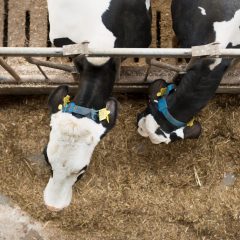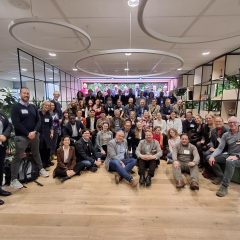Research project Distributed digital infrastructure for the management of scientific collections in Flanders

General introduction
DISSCo-Flanders 2.0 is a Flemish/Belgian follow-up project, broadly framed by the larger DiSSCo Europe that works on the physical and digital management of all European natural science collections. The aim is to become an ERIC (European Research Infrastructure Consortium) before 2030, the largest formal agreement ever between natural history museums, botanical gardens, zoos, universities and other institutions in Europe. The scientific institutions in Flanders (9 funded, 12 associated partners) continue to work within DISSCo-Flanders 2.0 on opening up their biological, anthropological and geological collections, which include both smaller laboratory and orphan collections, but also some larger and a number of important reference collections.
Research approach
Within ILVO, 15 collections are catalogued in a self-developed Collection Management System (CBS), together accounting for >560,000 items. Approximately 95% of these are fish otoliths. Other important collections are the >21,000 food and plant-related items within our microbial collections. In addition, ILVO manages a number of smaller collections, including insects, macrobenthos reference material, soil samples, breeding seeds and azalea cultivars, and the molecular (DNA and eDNA) samples that belong to all these collections. In this follow-up project, the collections will be made even more FAIR and the CBS will be further optimized and linked to lending facilities such as ELVIS. In addition, we are fully committed to the incorporation of molecular (DNA) collections and 3D (and advanced 2D) images in the CBS.
Relevance/Valorization
Digitalized, searchable and integrated scientific collections create opportunities for comparative research in the field of climate change, food safety, health, bio- and socio-economy. With the in-house developed CBS, ILVO data and collections can be quickly and easily picked up via other CBS systems that are being developed within DISSCo-Europe and other RIs. By incorporating 2D and 3D images in the ILVO CBS and by using AI, specifically with regard to the ILVO macrobenthos reference collection, it becomes possible to share material digitally and to study species material without physical handling, thus avoiding the risk of damage to important reference material.
Financing
FWO - Fonds Wetenschappelijk Onderzoek








